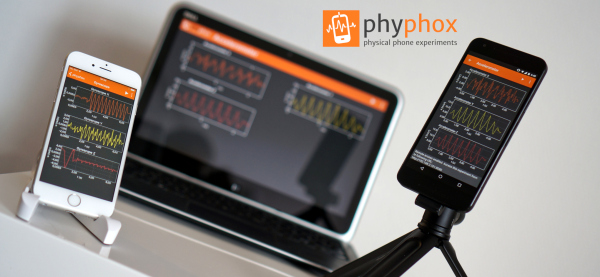Did you know smartphones, with the right apps, can turn into physics experiments? Smartphones have accelerometers, barometers, magnetometers, gyroscopes, microphones, and light sensors. This fun app can graph out the raw sensor data, and also has a set of physics experiments you can do with it, such as determining the speed of an elevator. I've tried out the graphs of the sensor data and it's fascinating. I haven't tried any of the physics experiments. I just installed the app today. The app was produced by RWTH Aachen University in Aachen, Germany. (RWTH stands for Rheinisch-Westfälische Technische Hochschule, in case you want to know.)
phyphox: physical phone experiments
#solidstatelife #smartphones #science #physics

Your smartphone is a mobile lab.
Download for free: Follow us: Features Sensors Phyphox allows you to use the sensors in your phone for your experiments. For example, detect the frequency of a pendulum using the accelerometer or measure the Doppler effect using its microphone.phyphox
like this
N. E. Felibata 👽 reshared this.
Wayne Radinsky
•Brie Mmm
•@Wayne Radinsky Nothing spectacular, I'm afraid. We did acoustics mainly: whispering and shouting to see amplitude changes, whistling to see frequency (and its relation to period), we managed to see beats by whistling together, and also played a bit comparing frequency spectrum with corresponding time series – without underlying math, just to see how the peak on spectrum shifts with frequency changes. Sonar worked better outside, with just one wall around, than in room.
And three-axis magnetometer (along with compass), to show that Earth magnetic field indeed has direction. Accelerometer to see how acceleration changes on a spring (rubber, in this case), and to compare “bumpiness” of roads. All simple things.
billearth42
•